Title: Plumber, Philadelphia Common Council member
Birthdate: March 26, 1826
Death Date: January 29, 1898
Plot Location: Section 18, Lot 62
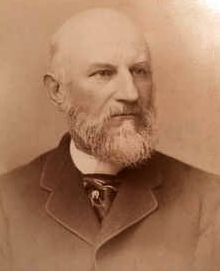
Charles was the grandson of Nicholas Iseminger, a Continental Army soldier who served in the Sixth Battalion of the Pennsylvania Militia during the American Revolution. The soldier’s son, Adam, had four boys, of which Charles was the fourth. Adam died just one year after Charles was born, and a brother died in 1828.
By then the oldest brother, Henry, was the breadwinner at 16 years old. His mother, Sarah, had charge of Charles, age 2, and George, age 5. When Henry was just 28 he succumbed to a stroke, leaving just Sarah and her two teenage boys. 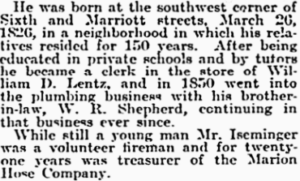
Charles worked hard and did well in the plumbing business as noted here in his obituary. It wasn’t until he was in his late 20s that he met and married Catherine Simon, a farmer’s daughter from Cheltenham in Montgomery County. That was in 1854, and the following year their son Adam was born. There were three girls and two boys to follow.
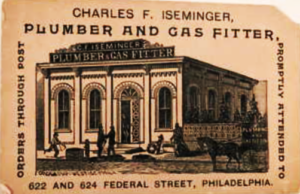 By 1860 the family was able to enjoy a comfortable lifestyle with a live-in servant, thanks to his successful business. His personal estate was listed at $2000 and he owned real estate worth $12,000. That figure rose to $20,000 in 1870. There was no record of military service in the Civil War, but even if he had been drafted he could have easily afforded the $300 fee to be classified as exempt.
By 1860 the family was able to enjoy a comfortable lifestyle with a live-in servant, thanks to his successful business. His personal estate was listed at $2000 and he owned real estate worth $12,000. That figure rose to $20,000 in 1870. There was no record of military service in the Civil War, but even if he had been drafted he could have easily afforded the $300 fee to be classified as exempt.
What’s most notable about this man’s life was his service to his city. He was 30 when he was first elected to Philadelphia’s Common Council. (From 1796-1919 the city’s legislature consisted of two chambers, the Common Council and Select Council, both of which grew in size as did the population. By 1919 there were 190 members, the largest municipal legislature in the country. Today there is just one City Council, with ten members elected by district and seven from the city at large.)
Charles served from 1856-1862, but chose to step away from politics for a time. It was a wise decision since those were the family years when his children were growing, but the family was also grieving. Scarlet fever took their son, John, in 1864 when he was two years old. Six years later, Charles Jr. was just 27 months old when he died of influenza. The parents had to navigate through this loss themselves while also consoling and counseling their four children. It must have been comforting to see Adam, now a teenager, decide to follow his father in the plumbing business.
Charles also remained close to his brother George, allowing his family to live in a house he owned and employing one of George’s sons. Tragedy struck in 1877 when George died of liver disease. Later that year, Charles won back his seat on the Common Council and held it for the rest of his life. Unfortunately, it was just one month after the election that his mother Sarah breathed her last. She was buried here in the family plot Charles had purchased for his sons.
Philadelphia was a bastion of the Republican Party from the time of the Civil War until the mid-1930s. Charles’ obituary said he stood out in this environment as “a staunch Democrat, and a man who expressed his convictions fearlessly and unequivocally.”
He gained seniority over the years, earning the nickname “Father of the Common Council.” Being a member of the minority party, he was never chosen to be president, but as the senior member it was his privilege to administer the oath of office each year to the newly elected presiding officer.
In 1897 Catherine developed uremia, an excessive level of toxins in the blood due to kidney failure, and died in June. Two unmarried daughters remained in the house with their brother and father, but Charles never really recovered from losing his greatest love. Seven 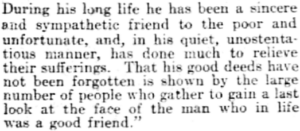 months later he died after a bout of influenza. A newspaper account of his funeral quoted part of the minister’s eulogy, shown here.
months later he died after a bout of influenza. A newspaper account of his funeral quoted part of the minister’s eulogy, shown here.
The funeral was attended by all 150 members of the two city councils and both Republican and Democrat Executive Committees. Charles left a house to one of his nephews, his business to Adam, a 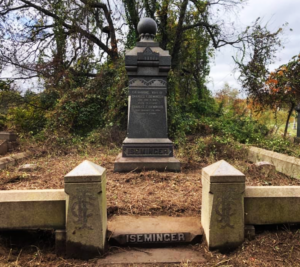 large life insurance policy, a comfortable life for his daughters, and this impressive family plot. Buried with him and his wife were his parents, one brother, and four of their six children.
large life insurance policy, a comfortable life for his daughters, and this impressive family plot. Buried with him and his wife were his parents, one brother, and four of their six children.
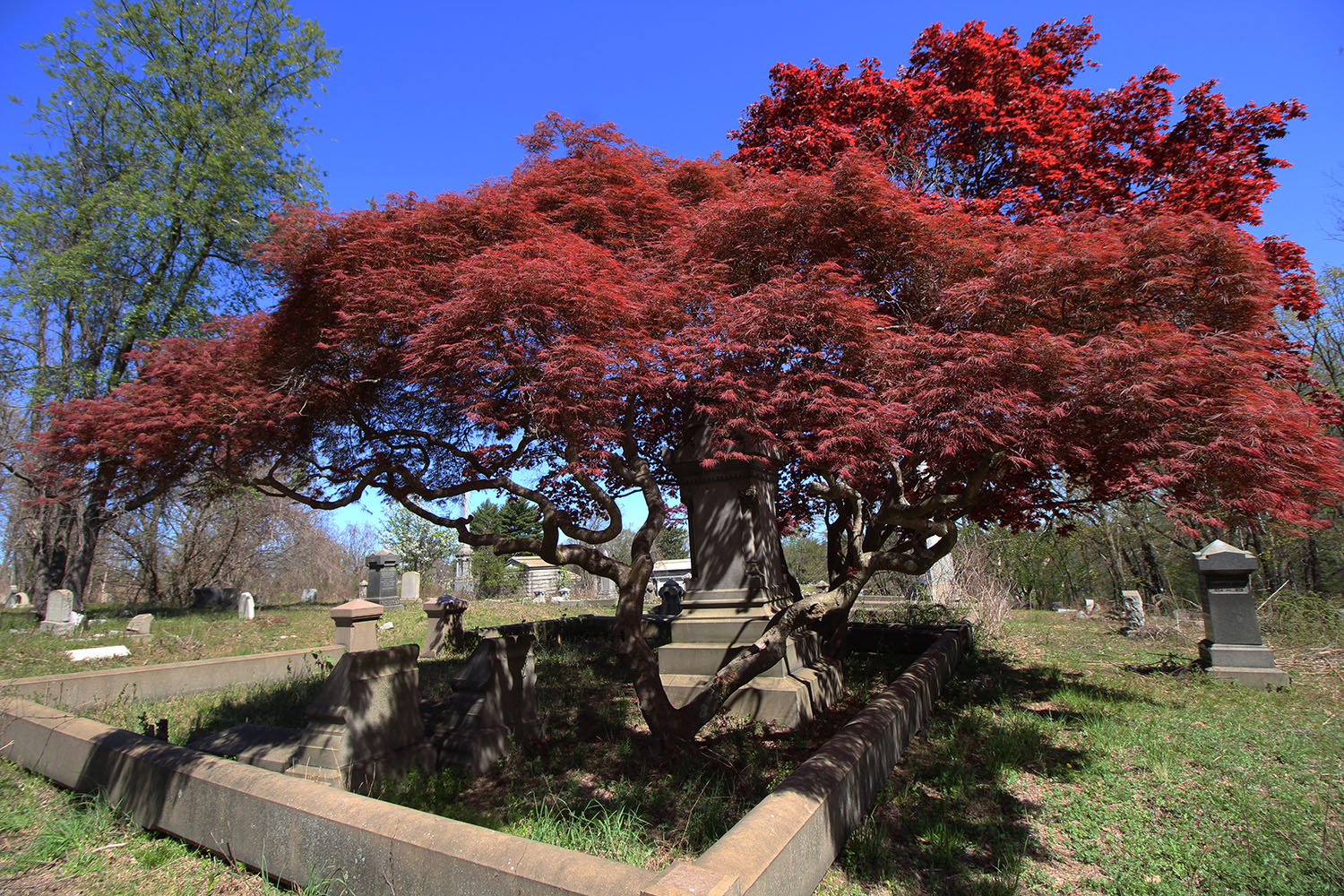
Support the Friends of Mount Moriah
Help us in our mission to restore and maintain the beautiful Mount Moriah Cemetery by donating to our cause or volunteering at one of our clean-up events.

